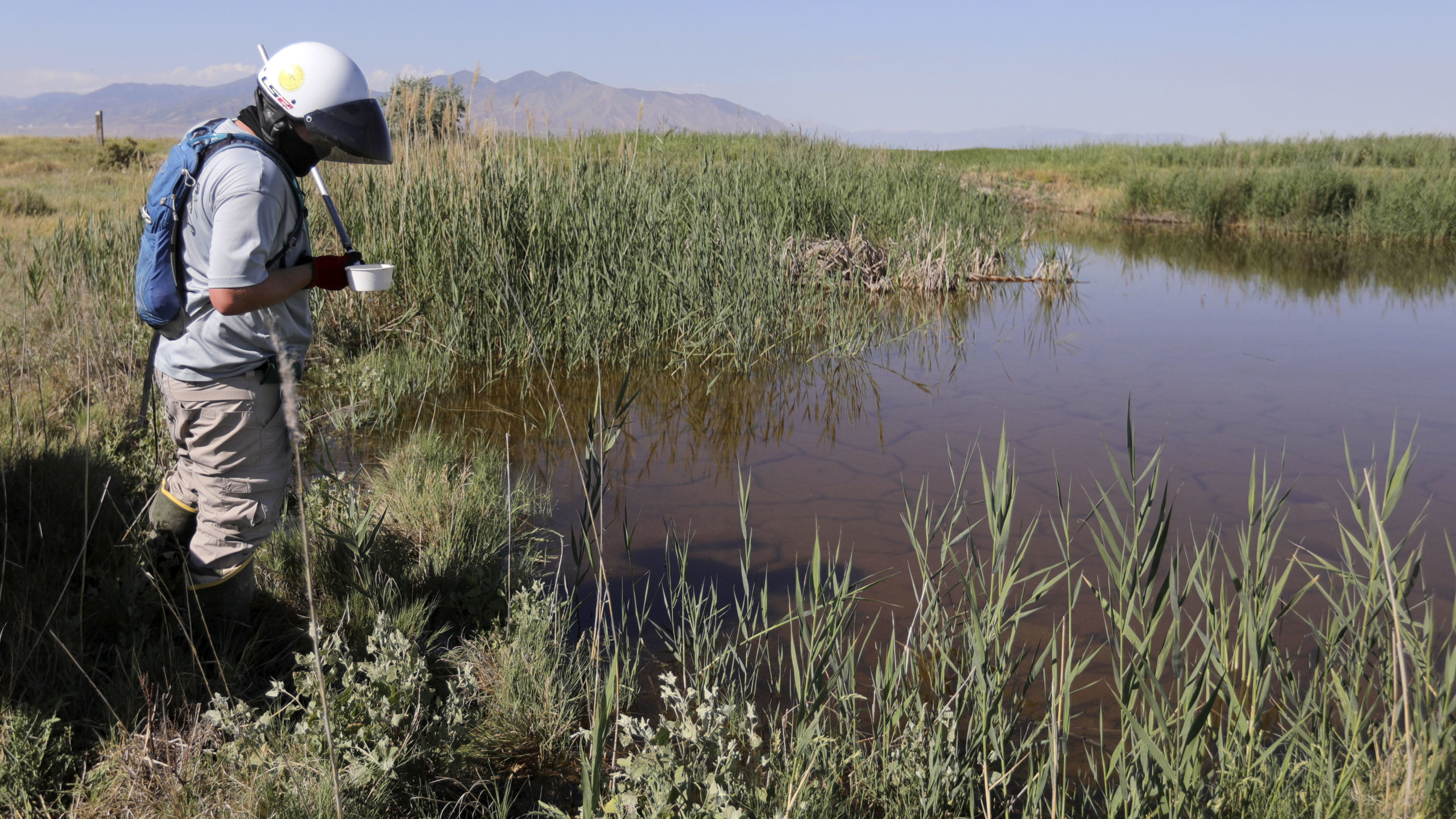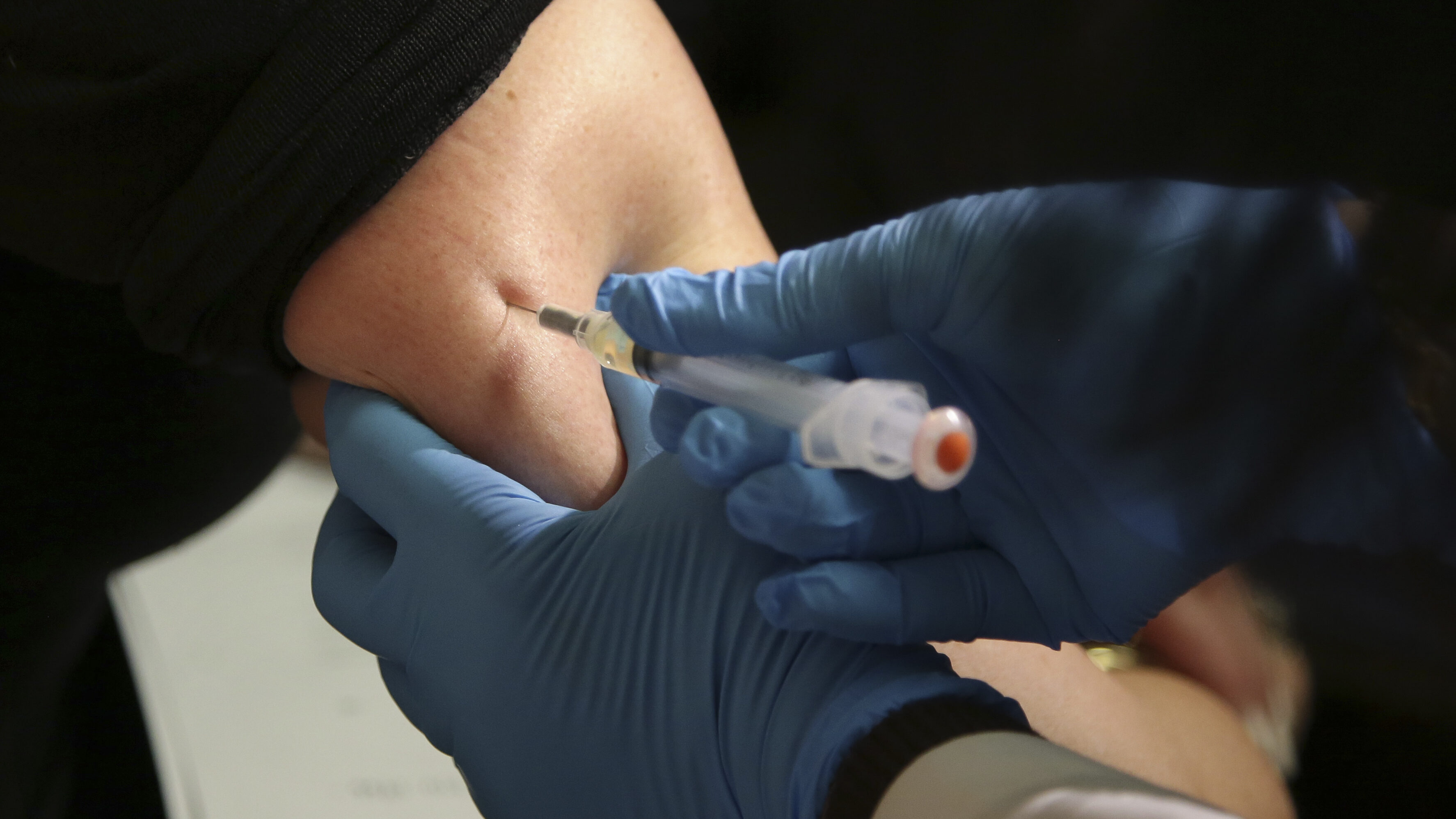West Nile Virus found in Davis County mosquitoes
Jul 18, 2022, 2:51 PM | Updated: Aug 2, 2022, 10:26 am

Todd Haskew, Salt Lake City Mosquito Abatement District vector control technician, collects a water sample from a mosquito source, looking for mosquito larvae, in Salt Lake City on Thursday, July 23, 2020. (Deseret News file photo)
(Deseret News file photo)
SALT LAKE CITY — The Davis County Health Department has reported the presence of West Nile Virus in some of the county’s mosquitos. The department did not specify where, only that the virus was found in a mosquito pool within the county.
At the time of publication, no human cases of West Nile Virus had been reported to Utah health officials.
Health officials said that finding a positive pool is an early sign that West Nile Virus is in the county.
Precautions to take against West Nile Virus in Davis County and across Utah
The Department is reminding residents how to protect themselves from mosquito bites, and the possibility of being bitten by a mosquito carrying the virus.
- Use insect repellent.
- Empty containers in your yard that are filled with water (for example, a plastic garbage lid) and change water in bird baths and horse troughs weekly.
- Wear clothing long-sleeved, light-colored, and loose fitting clothing when outdoors.
- Stay indoors when possible at dawn, and dusk.
Other suggestions from the Utah Department of Health include the following:
- Assure that doors, screens, and windows fit tightly.
- Report bodies of stagnant water to your local Mosquito Abatement District.
More information is available at the Mosquito Abatement District-Davis County website.
Symptoms of West Nile Virus
According to the Utah State University extension, mild symptoms of West Nile Virus can include headache, fever, body aches, and nausea — all similar to the flu. Severe symptoms are an intense headache, tremors, disorientation, and even vision loss.
Pregnant women and nursing mothers should speak to their doctors if they believe they have been infected with West Nile Virus.
Those most at risk for West Nile Virus are people over the age of 50 as well as people who have a compromised immune system.
It is important to note that 80% of people infected with West Nile Virus never show symptoms. This is the case for most people with healthy immune systems.
Pets can get the virus from the bite of an infected mosquito, but according to USU Extension, pets will not display symptoms.
The only way to confirm the presence of the virus is through a blood test.
Related reading:
- Climate change might bring more West Nile virus-carrying mosquitoes
- Less water doesn’t mean fewer mosquitos













